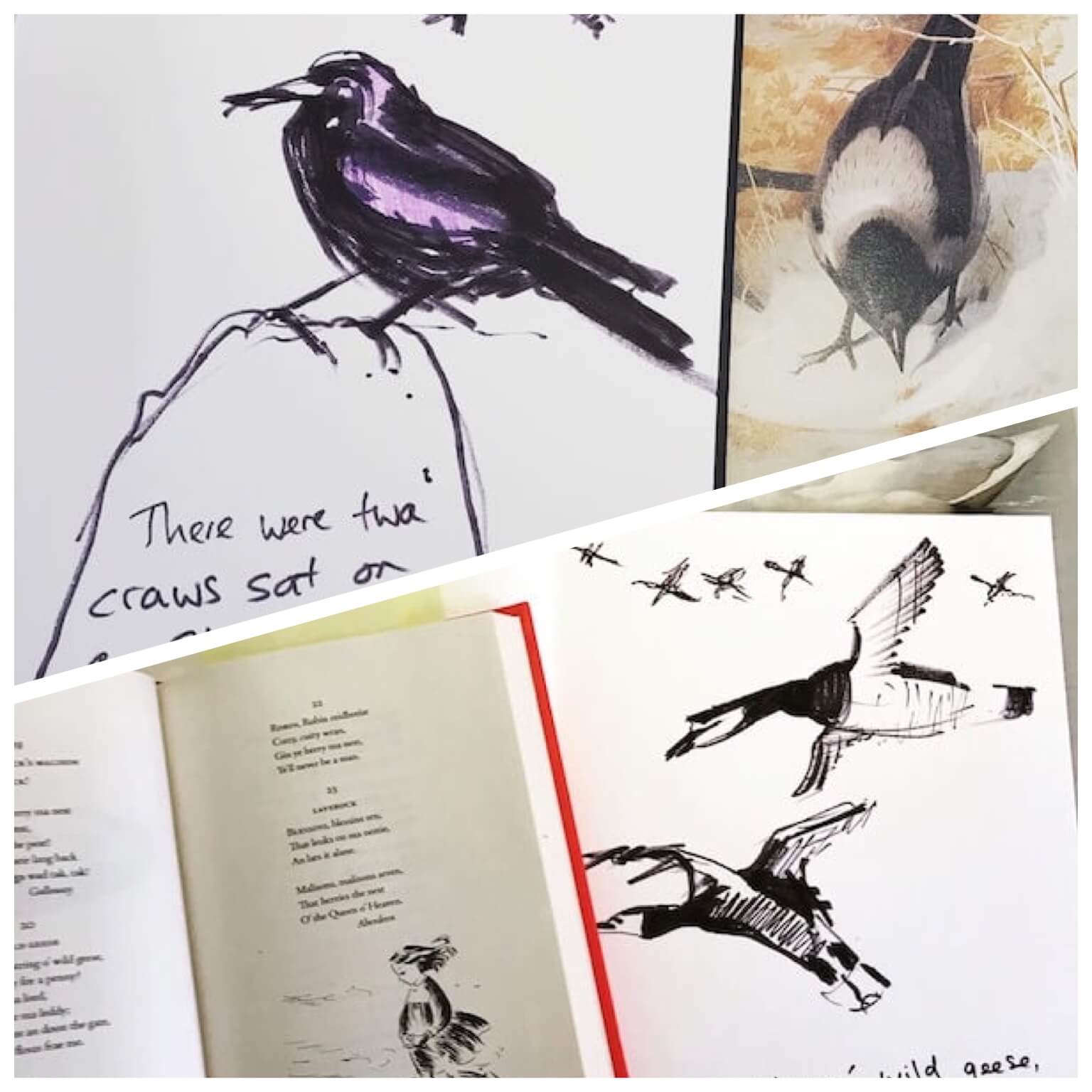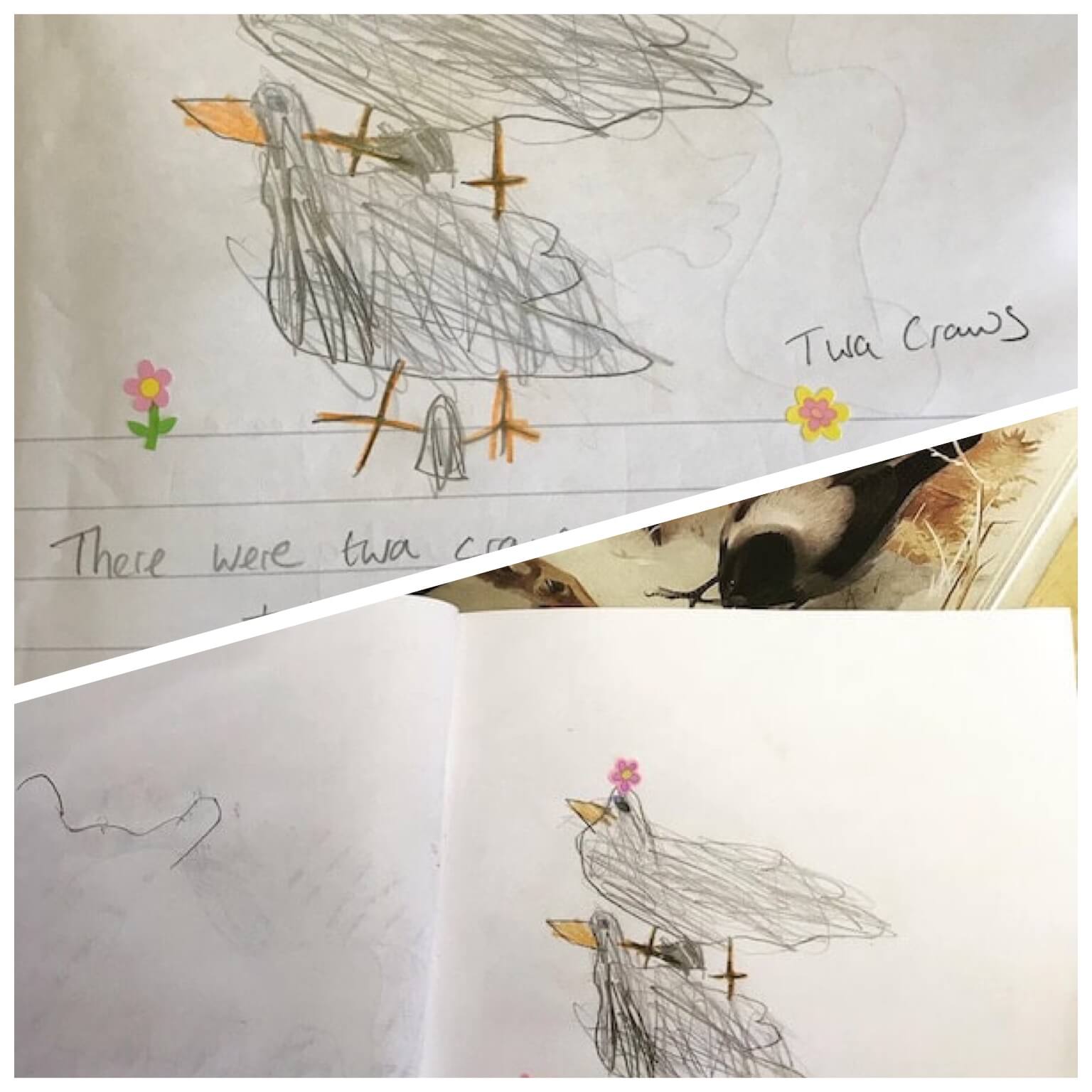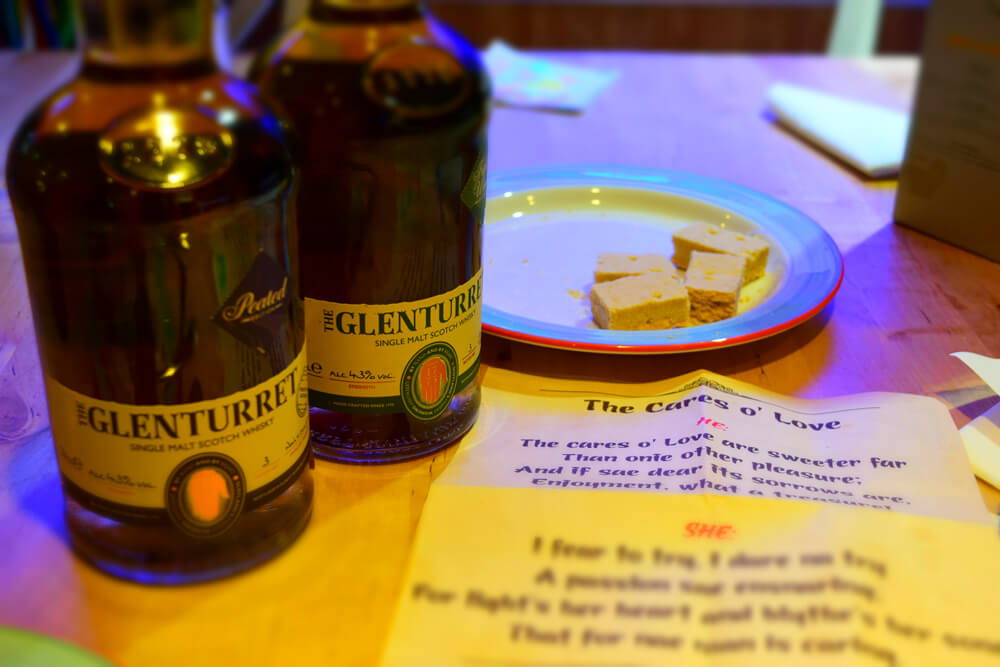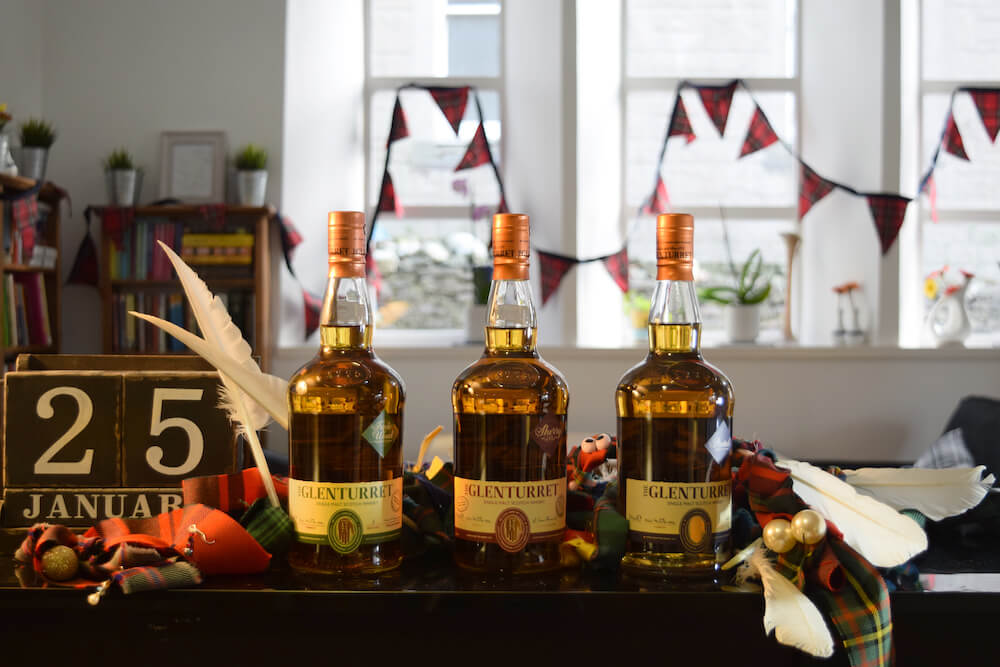A Shindig (Party) for Burns Night
If you study English in Scotland, you might already know that Burns Night is a time to celebrate the life and works of Rabbie (Robert) Burns.
Burns was a poet, perhaps now as celebrated for his outspokenness and irreverence to authority as his works. But his works ARE great. They are witty and observant and heartfelt. Burn’s Night is our nation’s annual opportunity to revisit them.
Read this blog to discover the life of Rabbie Burns, and just how our little independent language school in Scotland likes to celebrate his life.
For all English learner, there is a practice exercise at the end!
Rabbie Burns – The Archivist
In his lifetime (which ended early due to hard drinking), Burns not only wrote his own poetry and songs but also understood the importance of recording for posterity the songs around him.
Burns was a huge contributor to James Johnson’s publications of the Scots Musical Museum, for which he travelled (unpaid) around Scotland transcribing the local verse that made up such an important part of Scottish culture.
A Bard, 3 Craws and a Wistful Dram
Share Our Culture
More subtly, (and including very recently) they have been labelled incorrect, wrong and inferior.
Study Scottish in Scotland?
As a side project, we are also about birds for the forthcoming RSPB Big Garden Birdwatch.

“It’s likely some of which only exists thanks to the foresight of the people collecting it whilst it was still current language: perhaps even Burns himself played a part in the ones we were looking at.”
Ruth, 2021
Homeschooling the Bard
Wait, I Thought You Spoke English in Scotland?
If you study English in Scotland, you will have likely discovered that there’s more than one way to speak ‘English’.
For those who don’t know, Scots is the collective name for the Scottish dialects – also known as ‘Doric’, ‘Lallans’ or by local names linked to place – ‘Dundonian’, ‘Glesca’ and ‘Shetland’.
It has been spoken in Scotland for many centuries and is still spoken in many parts of the country, including the East and South, Highlands and Islands. It’s one of our three national ‘home’ languages (English and Gaelic being the other two).
About English in Scottish Schools
While the song has not changed in my lifetime, appreciation and respect for the ancient languages certainly have.
Scottish schools still teach generic English language skills to their students, but now less at the expense of erasing away accents and dialects. It less assumed that regional patterns of alternative grammar are ‘wrong’.
For second-language English speakers who study English in Scotland, it is more helpful to point out the differences between English and Scots as formal and informal language.
Undoubtedly everyone still needs the language skills to speak English correctly in certain contexts, but now, in Scotland, it is more acceptable to create and express yourself in your own tongue.
Language learning should never be about losing your own language or identity. It should always feel like you are gaining something extra.

“Undoubtedly everyone still needs the language skills to speak English correctly in certain contexts, but now it is more acceptable to create and express yourself in your own tongue.“
Ruth, 2021

“Be proud of the beautiful language you inherit from your ancestors – whichever language and culture that may be.“
Ruth, 2021

Further Information
Your English Language Challenge | Reading Comprehension
It’s a reading challenge this week!
The National Trust for Scotland has a great website introduction to our national drink.
If you want an overview of Scottish whisky’s history, regions and manufacturing, read this webpage. It’s full of useful language for describing techniques and processes. Pick out any which apply to your own workplace – and use them in sentences to describe your job.
Or you can just let us know your favourite whisky in the comments below!
“Read the link on whisky making.
Select the vocabulary which applies to your workplace.
Use it to describe your job.”

History Guides
Further ways Blue Noun language hub shares history and historic culture
Discover how we use Scottish history to unlock your English.

